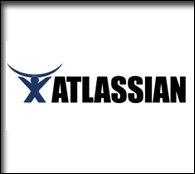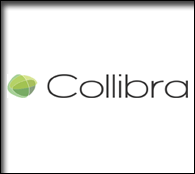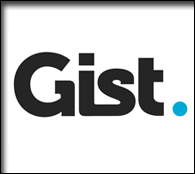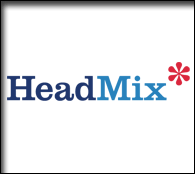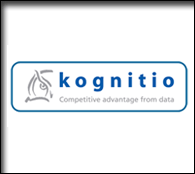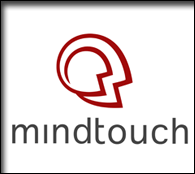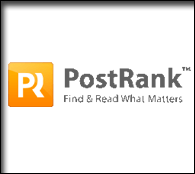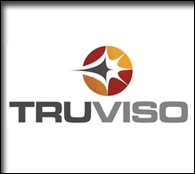Archive for September, 2009
Planes, Trains and Automobiles - and Hotels
by Eric Norlin on Sep.30, 2009, under Uncategorized
It occurred to me the other day that I’ve been in the conference business for 10 years now (HOLY CRAP!). Other than making me feel old(er), it makes me realize that I’m starting to get comfortable with some “patterns” that are common in the tech conference world. These common patterns include:
1. Press/Journalists register at the last minute (and yet, every year, PR people ask me who from the press side is coming a month out).
2. Registrations come in waves, with a big wave coming in the last two weeks.
3. People often plan their travel (hotel and flight) BEFORE they register for the conference.
And it’s #3 that I need to address today.
Defrag is at the Hyatt Regency Denver at the Convention Center (which was built new for the democratic national convention). It’s the newest hotel in town, and a great space - but as such, it hasn’t experienced any kind of economic downturn and regularly sells out.
We received word yesterday that our room block (the rooms we have set aside for defrag attendees) will be released on October 19th - after which your ability to get a room as a defrag attendee will be based purely on general availability. And here’s the thing - the hotel is looking at being FULL on the days over defrag.
In other words, book your hotel room NOW.
We do everything we can to make defrag an amazing experience for everyone that attends — trust me, you want to be at the hotel with us. Get your room reserved today.
Topical Explorations
by Eric Norlin on Sep.29, 2009, under Uncategorized
As part of our “end of September special,” I wanted to delve a bit into our topical explorations at Defrag.
Topical Explorations are on both afternoons of Defrag. They’re comprised of four “points of view” (POVs) followed by a room-wide discussion period led by a “discussion catalyst” (my fancy name for a guy or gal that plays phil donahue or oprah, respectively). The “topics” are meant to be high level “meta” areas, and the POVs are more in-depth looks at a specific angle of that meta area (different sides of the topical prism, if you will). The sessions aren’t built to be panels, and the discussion that ensues isn’t simply a moderator asking panelists questions. Rather, it really is meant to include the whole room.
That said, you can check out some of the topics (I’m still finishing out some) — for instance:
Social Media and Community, which includes -
Nerdherding for Fun and Profit - Andrea Baker, NavStar
How Heavy is the Internet? - Dan Neely, Networked Insights
How to be Awesome: Measuring, Tracking and Building Online Influence -Micah Baldwin, Lijit
When the Followers Lead - Flock Behavior in Communities- Maggie Fox, Social Media Group
…and a discussion led by Laura Fitton.
I think you’ll find that the explorations make defrag a much more interactive conference than most. And I think the meta-topics (Messaging Metaphors, Foundation/Enabling Infrastructure, Social Media and Community, Collaboration, Discovery and Intelligence, Conversations, Data Management Analytics and Context, and Leveraging the Open Web) provide a really comprehensive cross-section of what we’re covering at Defrag.
At the end of the day, we’re all about an intimate networking setting filled with amazing people and thought-inspiring things that make your brain tingle.
So, go ahead and use the code “septspecial1″ by the end of the day wednesday to receive $300 off on registration. See you there!
Defrag’s September Special
by Eric Norlin on Sep.28, 2009, under Uncategorized
I’ve been getting a lot of requests as of late regarding a discount for Defrag - and we’re going to oblige by running a special for the last three days of September (Monday through Wednesay), but I awoke this morning wondering what I should say about coming to defrag.
And then it hit me…
I really do take this personally. There’s no such thing as “it’s just business” in my world. Every last detail, every small minute thing, every single attendee’s experience — they matter to me. I can tell you every piece of “constructive feedback” I received after last year’s show. Hell, I can tell you who said it, where they work (then and now), and what *exactly* they said (because I’ve got it right here in front of me). Why? Because it all matters. Because it’s not just business. Because Defrag isn’t a “job” for me; it’s a passion.
You will never see me start a conference because there’s a “market” to tap. I start conferences because I think there’s a problem to solve. Because there’s a need.
Add those two paragraphs together and what do you get? A really different experience at Defrag — because it’s not just business. Because we take this personally.
Alright, enough of that — here’s the special: Use the code “septspecial1″ anytime between now and end of the day on wednesday and you’ll receive $300 off of the Defrag registration. That makes us the best value going, and it makes this the best price you’re going to find.
Don’t delay, wait or hesitate - register today.
It’s all about the people, right?
by Eric Norlin on Sep.26, 2009, under Uncategorized
Recent un-related news events caused me to start pondering one of my favorite topics: human nature. Or more specifically, the assumptions we make about human nature.
Human nature is, of course, a subject of debate. From original sin to the blank slate to the noble savage to more modern notions, there’s certainly no dearth of ideas around what is human nature.
And yet, the whole “enterprise 2.0″ movement seems to gloss right over it. Let me explain…
When the e2.0 pundits speak about the benefits and glories, they move through the listing of what it all can do (productivity, increased efficiency, etc) and then eventually you get down to the inevitable question: “great, what do I buy to make it happen?”
Answer: “wellllllll, it’s not really that simple. You, see the real benefits of e2.0 come from *culture*. You need to worry about the *culture* as much as the technology.”
Questioner: “okay, how do I worry about the culture?”
Answer: “yea - uhm - it’s really all about the *people*.”
And therein lies the rub.
If it’s not about tools it’s about culture, and if culture is all about the people, then at the end of the day e2.0 has to make certain assumptions about the *nature* of those people. I would argue that the current set of assumptions include that people will want to share, that people enjoy working together, that people think helping other people out is a good idea, that knowledge shouldn’t be hoarded, and that you can best succeed by subjugating at least a portion of your interest to the collective good.
(btw: I’m not arguing that I agree or disagree with these things - I’m arguing that e2.0 *assumes* these things.)
However, there are rather large swaths of human history (like, you know, most of it) that would tell us that the above assumptions don’t hold true (at least some of the time).
What if you work in a corporation, and the dirty little truth of the matter is that you have to guard some knowledge closely, watch your back against attack from other employees, and just generally scratch, claw and fight to make your way up the ladder. Worse - what if you enjoy that, and it’s what you want to do with your life? Doubly worse - what if your company is incredibly successful with this culture?
The easy defense from the e2.0 side of the house will be: “yes, but over time in a connected and networked world, the companies that will be hyper-competitive will be those that enjoy the synchronicity of emergent communities based around non-hierarchical sharing structures which empower and enable employees to be managers of customer satisfaction.”
okay - what?
So, it’s all about the people, right?
Look, I believe in the “productivity surge” and larger movement that’s changing the nature of corporations. And I think it really does mean a cultural and person-driven change. But I also think that most of the planning being done around “collaboration” is making some pretty naive assumptions about human nature. Not that we can even qualify what “human nature” means, but SURELY as technologists we can identify the problems in the system (”getting buy-in” for example) and begin discussing solutions that are a little more robust than throwing around loaded terms like “culture” and “people.”
Or we could waste the next couple of years getting hot and bothered over “emergent non-hierarchical sharing systems which empower and enable” only to find ourselves with little more than wikis, databases, and open work spaces at the end of it all.
thoughts? ![]()
As always, you should join us.
Defrag keynotes - overload anyone?
by Eric Norlin on Sep.22, 2009, under Uncategorized
I woke up wanting to write a post about Defrag keynoters, and now as I’m looking at the agenda (that is more current than what’s on-line), I’m realizing just how much damn good content we’ve got! So, as I walk through this, if it doesn’t seem to gibe with what’s published — trust me, I know the guy in charge.
The keynote content kind of “breaks down” into a couple of main areas:
1. Keynoters: These are the more traditional 30 minute keynotes - meant to lay out some strategic framework, or set the stage for some other things we’re going to talk about. They include -
Andy Kessler - Andy’s planning to lay out some new work he’s got around productivity cycles in our economy and what we can all expect going forward.
Lili Cheng - Lili’s going to be sharing her work around “social boundaries” and drawing on her research in gaming, mobile, etc.
Chris Sacca - Chris is bringing his view as VC, early twitter investor, etc to the stage to chat with us about his forward-view of where this whole “social” thing is going.
John Winsor - John’s coming to talk to us about building companies and products that market themselves; something I know every last one of us needs to understand better.
Robert Scoble and Buzz Bruggeman are organizing a panel discussion around search and discovery. And if it’s anything like the email thread that I’ve been watching around it, you’re bound to hear the phrase, “are you smoking crack?” at some point in this argu -er- discussion.
Brad Feld, Fred Wilson, Howard Lindzon, Roger Ehrenberg and Jim Tybur are gathering on stage to discuss what “social” mean for the next wave of innovation from their standpoint.
Paul Kedrosky is holding the 2nd annual “Kedrosky Awards” - a session done all in good fun, where Paul gets to decide who the smartest person on stage is.
The Cluetrain Reunion is happening - where we’ll have Doc Searls, Chris Locke and Rick Levine coming together on stage with JP Rangaswami (of the new edition) to discuss what Cluetrain looks like 10 years down the line.
2. Fragments: These are shorter keynote slots that are meant to explore a more specific aspect of this hot mess we’re tackling. By NO MEANS does shorter mean less important. In fact, these folks in the fragment section are some of the smartest people I know. The fragments include:
Stowe Boyd on The Deep Structure of the Real-time Stream: Semiotics and Microsyntax
Anil Dash on The Push Button Web
Kevin Marks on the Flow Past Web
Jeff Dachis on Social Business Design
Kim Cameron on Identity as a Collaborative Foundation
…and a couple more that I’m still working on.
3. The Problem Set: This section occurs morning one, and is meant to stimulate a lot of discussion. The idea is to have 4 smart entrepreneurs get on stage and explain a problem that they’ve discovered that they haven’t found a solution for - yet. One condition: it can’t be the problem their startup is solving.
Okay, that’s just the “keynote sessions.” Oh - and did I mention we’re having a mini-open space session in the midst of all of this? Yea, my brain hurts already. I’ll start to review the break-outs over the next month. But if you’re looking to get a sense of what the Defrag keynotes will give you, you can look at it like this:
Get a broad view of the macro-productivity trends that will effect all industries over the next 10-20 years. Examine how our very personal perceptions of “social boundaries” will alter what collaborative tools look like in the next 2-3 years. Discover four new problems. Think about Microsyntax. Discuss things in an open space. Take a look forward at innovation in the next 18 months.
Learn how to build something that markets itself. Find out about the push-button web. Explore the flow past web. Dive into social business design. Have fun with the Kedrosky awards. Think hard about the constructs of identity. Ponder social leverage. Argue about searching and discovering. Reflect on 10 years of the Cluetrain Manifesto.
…and somewhere in there, throw in entire afternoons of breakout sessions.
You should really join us.
Memo to startups: waiting for that moment
by Eric Norlin on Sep.18, 2009, under Uncategorized
Do you ever just wake up with some unidentifiable frustration? It’s not a specific thing, but more of a “something’s itching at me and I just can’t put my finger on it.” That’s how I woke up this morning. So, after kicking the dogs and swearing at my computer for a bit (i’m kidding!), I settled down to read the news -which means hit my list of usual sites and read TechMeme.
And that’s where I found Sarah Lacy’s wonderful “Memo to Start-ups: You’re Supposed to Be Changing the World, Remember?” (go read, i’ll wait.)
Sarah’s speaking directly about the startups at TC50, but I think the point applies equally across the board. I am so freakin’ frustrated by this incrementalism that’s infecting our damn sphere of innovation!
Do you remember 2001-2002? Let me talk about two things that happened back then, that I saw personally, that illustrate my point.
1) Blogging: I started blogging in 1999. Dave Winer invented it much earlier than that. Yet in 2001, I could count on my hands and feet the number of “bloggers” there were. Blogging just wasn’t that big of a deal. But to those of us doing it, it was a world changer. And it really has been. Blogging was the launch pad that took us from the web of pages to the read/write web to the web of flow that we’re seeing today. None of that happens without blogging (and RSS). None of it. How’d it start? Slowly. Painstakingly. But with a group of people who saw a larger vision and really didn’t give a damn about driving Tesla’s or fitting in with some geographically cool crowd. We blogged because we knew it mattered. Period.
2) Digital Identity: I got into the identity game in 2001. Folks that arrived there via directories were there long before me. But when I arrived, there really wasn’t an “identity management” industry. That industry today is worth billions of dollars. Why did it come to life? There were about 250 of us that really honestly and truly believed that identity was the single most important thing that could be figured out for the advancement of technology. It was THE big solution to THE big problems. I still have friends and cohorts slaving away on that problem — but that original passion was inescapable.
In both of those instances, you could just feel the innovation. The “we have to build this because - dammit - if we don’t, who’s gonna?”
Does anyone really feel that with the current set of software we’re working on? I feel it from individual people inside of vendors, but that’s not good enough.
One of the truly wonderful things about conferences is when you find this weird table of engineer-types huddled over beers starting at a computer screen. Occasionally, those people work for (or are founders of) software companies. And every once in a while, they’re NOT talking about some partnership they can do to help drive revenue. Nope - they’re talking about how if you code this and I hack that, we can build this thing that no one’s even figured out how to talk about yet. And wouldn’t that be cool!
I’m waiting to really see that moment coalesce. I know it’s out there. I think I’ll see it at defrag. I’ll do everything I can to help foster it. Until then, I’m frustrated — and no amount of “case studies” in the world are gonna help me get over that.
So, can we please move past this incrementalism and start thinking big?
The Blending of Marketing and IT
by Eric Norlin on Sep.15, 2009, under Uncategorized
There are a couple of posts out today about Jive and Radian6 partnering around a solution that begins to bridge the chasm of social media and enterprise 2.0 that I’ve written about here in the past. I’m glad to see companies like Jive (who should be a defrag sponsor, but isn’t - yet - AHEM!), and MindTouch (who is a defrag sponsor - tks guys!) beginning to tackle the “chasm.”
I’m glad because I’m hearing more and more from attendees about precisely this problem. But, specifically, I want to talk about one aspect: the blending of IT and marketing.
The people I’m talking to are enterprise IT guys that find themselves suddenly tasked with “understanding this social stuff” and figuring out “how it connects to our collaboration stuff.” Their first reaction tends to be, “isn’t that social stuff marketing’s (or PR’s) problem?” And the geekier they are (i.e., if they’re senior level IT guys that are really just developers at heart), the more likely they are to recoil at any indication that they’d get involved in marketing (ewwww, right?).
There’s a blending of roles that’s beginning to happen here, and I think it is critical to recognize this: IT and Marketing are rapidly merging (or at least over-lapping). This is like insert-your-favorite-dichotomy-here coming together in peace and harmony. And the importance of it should not be underestimated.
What’s driving this?
From the marketing side, the internet changed everything. “Mass” marketing used to be wonderful because you really couldn’t ever measure anything (other than a sales increase), and as such, it provided a certain level of “job security” for “marketing professionals.” Yea, that’s gone. Now you can measure pretty much everything - and the “real time web” (I can’t stand that term) is only making that drive to analytically understand “engagement” worse. When everything can be measured and analyzed — well, guess who’s really good at that? Yep, IT.
From the IT side, we really are rapidly approaching the day when APIs (application programming interfaces) are key to a marketer’s job. Social media is unescapable - and it’s getting geekier. Plenty of enterprise IT guys that I know just don’t get twitter — until you say, “think of it like an open API, messaging bus for everything you could possibly dream up” — BING! — they’re there.
Social media (marketing) meet IT. IT - time to think about what “marketing” means.
What does all of this mean? Well, for one thing, it means that companies like Networked Insights (defrag sponsor- tks guys!) and Radian6 (should be a defrag sponsor - ahem!) need to start selling to IT departments. That’s where the buying nexus is moving. On the other side, “collaboration” vendors better get their ducks in a row around analytics and social media because the line that divides “internal” and “external” is pretty rapidly going away.
And if you’re an IT professional that suddenly finds yourself tasked with all of this marketing and PR stuff? Well, coming to Defrag’s a good start (sorry, you knew I was gonna say that, right?). ![]()
Consolidation and Distress
by Eric Norlin on Sep.09, 2009, under Uncategorized
Dennis Howlett (disclosure: I’m a big fan) has a post up today about the RightNow acquisition of HiveLive (which reminds me, why oh why are we incapable of spacing out 2 words in a company name anymore?). It’s an interesting post that begins to dive into the necessity of integrating “Social CRM” - but that’s not what really caught my eye.
In the post, Dennis points out that HiveLive took 7.8 million in funding, but sold for 6 million - and then he muses on a bit (with the help of Sameer Patel) about who could be next in this “consolidation” phase.
All of which got me thinking a bit about things I’ve been hearing as of late and the mindset of the enterprise buyer. The LAST thing an enterprise guy wants to do is purchase something from a startup, and then watch them go under (being acquired isn’t that - obviously). But, I’ve also been getting this sense lately (from conversations with “e2.0″ vendors) that we’re reaching a point in time where a second wave of startups is about to have “funding” problems; that we’re about to see a lot of “distressed consolidation” and outright door closing.
Now, I would *never* assert that a vendor that isn’t a sponsor of Defrag is somehow in a weakened financial state. There are just too many factors at hand (maybe they chose to be at another show instead; maybe they’ve re-aligned they’re marketing initiatives away from events; who knows). I will, however, assert that when a vendor has a presence at a conference it does at least betray some sense of financial stability. Sure, you get the rare case of someone going “all in” on a conference presence - hoping it’ll save the company. But, honestly, that is really really really rare.
The more likely scenario is that a company that is a sponsor of an event like Defrag is running their operations along at an appropriate pace, and spending their marketing budgets accordingly. I wouldn’t extrapolate it too far from that point, but I know for a FACT that enterprise buyers use the “saw them at show X” as an implicit gauge of company strength.
Right or wrong, fair or not - it is what it is.
The liminal state
by Eric Norlin on Sep.03, 2009, under Uncategorized
A few days ago, I posted about the chasm between “social media” and “enterprise 2.0″ - about the different messaging, models and modes of thinking, but all with what I think is common ground. Over the past few days, I’ve found myself in interesting conversations around “social CRM,” the collision of tools like twitter and email, and the general sense that we’re just not gonna get “there” by staying in within the “enterprise 2.0″ meme.
I know there’s a danger of this being perceived as me “talking my own book.” I mean, it’s no secret that the E2.0 conference is the week before Defrag, and that there’s some pretty significant crossover in our attendees, vendors, etc. But I can honestly say that 1) I’m not personally seeing any drop-off in defrag activity because of e2.0, and 2) even though the e2.0 conference folks have told me they don’t want to form a partnership because Defrag’s “a competitor” - I really don’t see it that way.
To my way of thinking (to borrow from Hilary), this is gonna take a village. And the interesting part of that village (for me), isn’t so much the town square, as it is the edge of the village. That area where the marginalized meet.
Somewhere out there at the intersection of village and wilderness, there are plenty of folks working on tools that really do bridge this social media/enterprise 2.0 barrier.
And so, it is with great interest that I’m following the rise of “new school” consultancies — specifically The Dachis Group and The Altimeter Group. Dachis has been in the news of late via acquisition, and Altimeter (whose founder, Charlene Li, keynoted Defrag last year — not that we’re ahead of the curve or anything) via some high profile hires.
Dachis’ term for all of this village/wilderness liminality is “social business design.” David Armano (of Dachis) has been doing some great blogging that begins to lay out their vision of where this all goes. Part of my job, as conference organizer, is not merely to reflect the trends (case studies), but to provide historical perspective and to push (and push and cajole and push) on the areas that need attention and should be furthered.
The historical areas are things I’m working on building out (and need your help with). Social Media’s roots go all the way back to email lists and personalization technologies. Collaboration’s (e2.0) roots extend clear back to VisiCalc. The ground between email communication and VisiCalc is the historical edge that we must (as a group) come to understand better. And I know that part of that happens via re-engaging around works like The Cluetrain Manifesto.
The “areas to be furthered” are so many as to be overwhelming. Let me give you one example that came up on a call today: the concept of twitter’s “open follow” and the importance of OAuth.
Most of you probably, at least implicitly understand, “open follow” — it’s the principle in twitter that says that you don’t have to know me to follow me. That principle is shared with email (I don’t have to know you to email you, I just have to know your email address). It’s a principle NOT shared (interestingly) by Facebook and LinkedIn.
OAuth is the protocol (familiar to developers, but maybe not to our e2.0/social media friends) that allows you to “authorize” an application to access certain portions of twitter’s API. I’d go so far as to say that the single most important enabler of Twitter as a social media platform is OAuth. Without it, everything just got 400 times harder (engineering-wise).
So what does the e2.0 crowd have to learn from this? Is the “open follow” mechanism in existence in e2.0 products in such a way that it enables cross-organizational boundary growth of collaboration? I don’t think so. How would you go about implementing such a thing? You guessed it - OAuth.
The future of “social business design” or whatever we want to call it, lies at the state of liminality - at the *threshold*. That’s where I’m keeping my focus. That’s where the interesting stories are going to get told.
I hope you’ll join us for the telling (early bird pricing ends tomorrow).
Extending early bird
by Eric Norlin on Sep.01, 2009, under Uncategorized
Due to popular demand (which is to say, people emailing asking for another couple of days), we’re extending early bird pricing until this Friday, Sept 4th (at close of business). It’ll be your last chance to save $500 bucks.
All of which has some of you wondering (I’m sure), “what’s the point of early bird pricing anyway?” Or maybe more pointedly, “isn’t early bird pricing just some marketing ploy?”
Early bird pricing is a long-standing practice in the tech conference world. For large technology conference producers -and by large, I mean those that are sitting on cash reserves big enough to handle logistical swings — it really is just a gimmick. For the smaller, independent guys (and gals) like myself, it actually plays a pretty critical role in things. Let me explain…
I often tell people that the only proprietary thing that I have for running tech conferences is a spreadsheet that tells me approximately the percentage of my total “audience” that should be registered by what date to result in a given total number of attendees. It’s a spreadsheet that’s been built in the trenches — time-tested, recession-proofed, and as sacred to me (for business planning) as a document can get. I just don’t doubt this spreadsheet. If it says we’re on track, we are. If it says we’re not, we’re not. (For the record, we’re running ahead of pace this year.)
The reason that’s so important is that we can control our cost per attendee if we can make an educated guess about our total numbers earlier. We order hundreds of fleeces, books, bags, etc - and we also plan for wifi, food, beverage — you get the idea. The more we know earlier, the better an operation we can run.
All of which is a roundabout way of saying that for us, early bird does matter. Hence, the incentive (save $500 bucks) to register early. That said, when I get emails as early bird is ending from people asking me to extend it for them, I can say “yep, we’ll slide it a couple of days.” But beyond that, we really can’t.
So, do something good for yourself and register by Friday (and you’ll be helping us with our planning as well). ![]()
